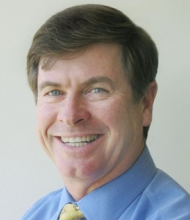Industry Insights
August 18, 2025
Zachry: A Leader in the Fight Against Opioid Abuse
- State: California
- - 0 shares
I recently attended the retirement dinner for my friend and mentor, Alex Swedlow, as he stepped down from his role as president of the California Workers’ Compensation Institute.

Bill Zachry
With Gideon Baum now taking the helm, I am confident that the CWCI will remain in good hands, continuing to focus on what is right and important.
Alex has always approached the workers’ compensation system with a clear-eyed purpose: Make it work better by using accurate, credible data to identify the problems that drive bad behavior and poor outcomes. Much of his energy as president went into ensuring that CWCI had the infrastructure, processes and talent to collect and analyze data objectively, an essential but often overlooked part of leadership.
Yet his most public, and perhaps most impactful, work was taking that data and using it to create real change.
The dinner was filled with colleagues honoring his leadership, intellect and professionalism. But what was not said — what should have been said — is this: In that room sat a man whose work and ethics have likely saved at least a half-million people from tragedy and death. His research, persistence and moral courage reshaped how California addresses one of the most dangerous public health threats in recent history: the misuse of opioids in injured worker care.
Seeing the problem before others did
In the early 2000s, long before the term "opioid epidemic" was part of everyday conversation, Alex began noticing troubling patterns in CWCI’s data. Prescriptions were lasting longer. Dosages were higher. Multiple opioids were being prescribed to the same injured workers.
Alex recognized what the numbers meant: Prolonged opioid prescribing was delaying recoveries, fostering dependence and, too often, ending lives. Injured workers, some recovering from relatively minor injuries, were being exposed to unnecessary and dangerous risks.
What set Alex apart was not just his ability to identify the trend, but to see the human cost behind it. Every data point represented a person — a parent, a neighbor, a co-worker — whose life could be forever altered by an avoidable prescription.
Turning data into advocacy
Under Alex’s leadership, CWCI produced a series of groundbreaking studies documenting the scope, risks and costs of opioid prescribing in the system. The CWCI reports quantified the rate and duration of opioid use, identified high-risk prescribing patterns, demonstrated the link between prolonged use and delayed return to work and highlighted the heightened risk to younger workers receiving opioids for first-time injuries.
Alex transformed sterile tables of numbers into compelling, actionable insights. His research gave policymakers and system leaders evidence they could not ignore.
Building coalitions for change
Alex knew that data alone doesn’t change policy; coalitions do. Alex recognized that the opioid problem was not just a California problem. He brought together a network of nationwide claims administrators, medical directors, policymakers, labor representatives and employer groups. In his efforts, Alex worked closely with like-minded professionals such as Dr. Gary Franklin from the Washington State Department of Labor & Industries, who also helped lead the charge against opioid abuse. Through conferences, legislative hearings and direct engagement, he reframed opioid abuse not just as a cost problem but as a public health crisis within workers’ compensation. His work built the consensus needed for reforms that were both medically sound and economically responsible.
From research to reform
The ripple effects of Alex’s work can be seen in some of California’s most important workers’ compensation reforms: evidence-based treatment guidelines for pain management, a drug formulary that limits inappropriate opioid prescribing and expanded use of prescription drug monitoring programs to track and prevent dangerous prescribing patterns.
These measures changed prescriber behavior, reduced unnecessary opioid use and encouraged safer alternatives for pain management.
The power of stories
While Alex excelled at statistical analysis, he never lost sight of the people behind the data. In presentations, he often paired charts with the real stories of workers whose lives had been derailed by unnecessary prescriptions.
These stories turned a policy discussion into a moral imperative, reminding stakeholders that the purpose of the system is not just to process claims, but to protect lives.
The results are undeniable. Opioid prescribing in California workers’ compensation has declined dramatically over the past decade, injured workers are experiencing shorter disability durations, and the risk of long-term dependency has been substantially reduced.
While the exact number of lives improved or saved may never be known, there is no question that Alex’s leadership prevented thousands from entering the cycle of addiction.
A lasting legacy
Alex Swedlow’s career at CWCI demonstrates how research, courage and ethical leadership can transform a system. His legacy is not just in policy changes or published reports, but in healthier lives, stronger families and safer communities.
In the Jewish tradition, there is a title of honor: Righteous Among the Nations — reserved for those who act with extraordinary moral courage in the face of widespread harm. Alex proved that one person with data and courage can fight an industry killing hundreds of thousands. He showed that spreadsheets can be weapons against evil, that research can be resistance and that truth-telling is a form of combat.
Bill Zachry is a board member of the California State Compensation Insurance Fund.
Advertisements
Columns
- Paduda: Hot Stuff From WCRI 09/29/25
- Gelman: Trial Judge Deference Prevails 09/26/25
- Zachry: Injured Workers Aren't Always Lying 09/24/25
- Kamin: The Difference Between 'Sudden and Extraordinary' and 'Violent Act' Exceptions 09/22/25
- Wickert: State Supreme Court Clarifies Rules for Suing Nonsubscriber Employers 09/19/25
- CAAA: AI Raises Concerns in Workers' Comp System 09/17/25
- Kamin: PEO Registration Bill Likely Headed to Newsom's Desk 09/15/25
- Montgomery: Stop Blaming Doctors for High Costs 09/12/25
- Snyder: Classic Advice Reminders 09/10/25
- Wickert: What Vermont's Landmark Decision on Legal Malpractice Subrogation Means 09/08/25
- Paduda: About Work Comp Medical Costs in Texas 09/03/25
- Kamin: Subpoenaed Records That Can Help With Internal, Psych Claims 08/27/25
- Peabody: Request for Remote Testimony Can Satisfy WCAB Rules With Due Process at Stake 08/25/25
- Montgomery: New DOL Billing Requirements 08/22/25
- CAAA: State Extends Safety Protections to Domestic Service Workers 08/20/25
- Zachry: A Leader in the Fight Against Opioid Abuse 08/18/25
- Kamin: Asking About Liens Against Compensation 08/15/25
- Snyder: Examine Your Process 08/14/25
- Paduda: California Comp Drivers, Part 2 08/13/25
- CAAA: DWC Fumbles UR Rulemaking 08/12/25
Now Trending
- Workers' Compensation News
-
Calif. Court
Publishes Decision Allowing
Provider Suspension for Dismissed…
Posted on Sep 25, 2025
-
Calif. Limitations
Period Must Be Tolled When
Disabilities Delay…
Posted on Sep 29, 2025James Witkop says: “This ruling will effectively eliminate the ability to demur based on the…”
-
Calif. CCWC Sets
Legislative…
Posted on Sep 24, 2025
-
Calif. DWC
Announces EAC…
Posted on Sep 22, 2025
-
Calif. CHSWC to
Review Long-Awaited Report on
Prepaid Benefits…
Posted on Sep 22, 2025
-
Calif. Preferred
Employers Insurance Names Kimberly
Wagner an Assistant Vice…
Posted on Sep 22, 2025
-
Calif. Physician,
Practitioner Section of Fee
Schedule…
Posted on Sep 22, 2025
-
Ill. High Court:
Employer Can Deduct Taxes From
Salary Continuation…
Posted on Sep 23, 2025
-
N.J. Denial of
Claim for Accidental Disability
Retirement…
Posted on Sep 24, 2025
-
Ntl. NCCI: Labor
Market 'Uncomfortably…
Posted on Sep 26, 2025
Jobs
Upcoming Events
Oct 10, 2025
A Night of Glitz & Giving: Kid
Join Kids’ Chance of Illinois for A Night of Glitz & Giving at the Fountain Blue as we come togeth …
Nov 7, 2025
WIMAH 2025 Workers’ Compensati
Join Hawai'i’s premier workers’ comp event for expert insights, top-tier networking, and standout …
Social Media Links
c/o Business Insurance Holdings, Inc.
Greenwich, CT 06836




No Comments
Log in to post a comment